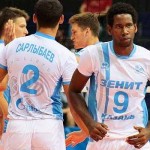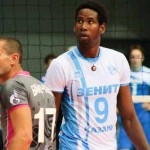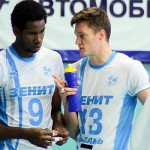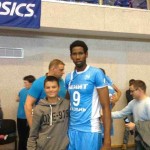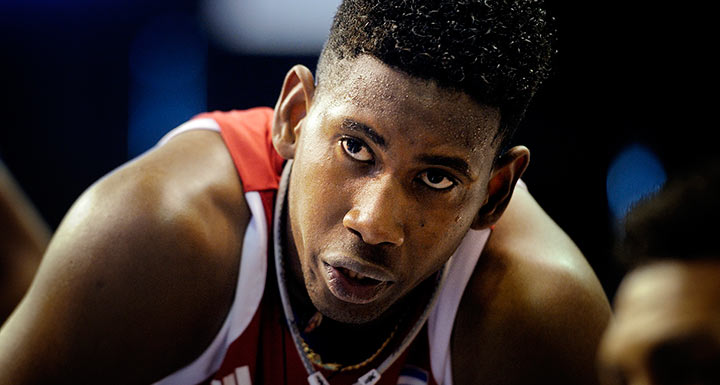
Wilfredo León: ‘I still don’t see changes turn into reality’
HAVANA — Wilfredo León Venero vanished suddenly. After the sanction imposed upon him for quitting the Cuban volleyball team, nothing was heard about him.
Of the image of that youth who, at 14, managed to become leader and captain of Team Cuba, bearing on his shoulders the pressure of the Sports City Coliseum on the climactic nights of World League competition in Havana nothing but dust remains.
Today, he’s a faint silhouette that occasionally flashes through Cubans’ eyes without leaving a trace.
The last we heard about him was that he was in Rzeszów, Poland, after leaving Cuba with his teammate Yohandry Díaz. After photos were released, showing both watching a Polish League game, he again disappeared.
At least it was learned that he wasn’t in Cuba but in Europe, that at any moment some wealthy club in the Old Continent would bid for his services and that he’d begin his career as a professional volleyball player. That turn of events has made him volatile and elusive.
Most Cuban athletes who decide to leave become rigid when talking, as if they were trapped inside a bottle. That’s the feeling I get every time I chat with León. He has just turned 21 and adolescence is ending. I notice it in his answers; he’s as slippery as water. Time passes for a reason, Wilfredo León has begun to grow; now he defends himself.
“Let me make clear that all my answers will have no political shading. I love my country, my people, my family and my sport,” he says, and reads me his terms before batting the first question.

Abraham Jiménez: Have you reached an agreement with some European team?
Wilfredo León: Yes, I’ve signed with the Russian club Zenit of Kazan. I think that it was said in Cuba that I had come to an agreement with some team in Poland, but that’s not true. They were just rumors.
A.J: But wasn’t Poland your first destination after leaving Cuba?
W.L: I was in Poland only with my wife and her family. That time was useful for me to train and regain my sports shape. I also underwent many tests, medical checkups and exercises that were both general and specific. But I never played in that country.
A.J: Almost two years out of the Mondoflex, does the European public even remembers you?
W.L: This period of inactivity has not made people forget me completely. Some people still remember me, they stop me on the street to ask me questions, they greet me affectionately. It never occurred to me that, after all this time, people might continue to remember me.
A.J: Do you miss the island?
W.L: Being able to communicate daily with my family has helped a lot. But it is very difficult. I miss home a lot; the least reference makes me think about the homeland. To be away from the family, to not feel the warmth of my people, the town, the sun, the fresh air, those are things that I miss every day. It’s hard to adapt to life without them, but I’m getting over it. Everyone who loves his homeland, his birthplace, finds it hard to be away from it.
We Cubans love our homeland, no matter what our ideals are. We are patriots; we love our flag and like to say proudly: “I am Cuban.” In the history of Cuba, many people have suffered by being away for various reasons, beginning with Martí, Mella and many others who were exiled and had to leave the country. It is sad and lamentable, but they never stopped being Cuban.
A.J: Are you aware of the new changes in sports policy that are being implemented in Cuba?
W.L: Yes, I’ve heard that athletes now can sign contracts abroad and return to the country later, but I still don’t see the changes turn into reality, so I don’t feel able to give an opinion on the subject. Let’s wait and see how this sports policy works out.
A.J: How do you assess Cuban volleyball at present?
W.L: Cuban volleyball continues to have much potential. The players are very motivated and the only thing the men’s and women’s teams lack in order to to achieve big results is to accumulate competitive experience.
A.J: Is it true that right after you decided to quit the national team you were drafted into the army?
W.L: Yes, it is. Me and my teammates in the national team had to undergo basic training for 40 days.
A.J: After that, there was a long period of inactivity. How did you manage not to lose your shape?
W.L: All that time, I tried to stay in shape by doing exercises. I went to the gym, trained on the beach, ran. Of course, after several months without the true rigor of the high-performance training, my body was no longer in the best shape. But I didn’t forget the techniques and now can say that I feel fully at ease on the court.
A.J: Did the Cuban Volleyball Federation ever ask you to rejoin the roster?
W.L: No, they never asked me to return to the national team.
A.J: If they did so today — would you return?
W.L: That’s a very hypothetical question. The years I spent on the national team gave me a lot of experience, unforgettable successes and memories that will always warm my heart. Nothing fills me with pride more than playing under my flag. I can’t tell you that I’d definitely not play for Cuba. Time will be a witness.
* Wilfredo León Venero first played with the Cuban Volleyball Team in 2008, at the age of 14. His versatility and talent on the court made him at once one of the team's key players. In the 2009 World League tournament, he won the title of Best Receiver. In 2010, he was one of the pillars of the team, guiding Cuba to a silver medal in the World Championship. The following year, he was named captain of the national team, becoming, at the age of 17, in the youngest captain in the history of Cuban volleyball. In 2012, he won third place in the World League. In 2013, he resigned his place on the national team. Last May, he signed a two-year contract with the Russian club Zenit, in Kazan.
**In the Platonov Memorial tournament that ended last week in St. Petersburg, Zenit defeated the local Dynamo team, clinching the title. Wilfredo Leon was named the tournament's best striker. Zenit coach Vladimir Alekno told the media that "Leon's game reveals him as a gifted young man who, early in life, began a career as a great player. He has done a lot already. Even though he hasn't played a full year here, his game rhythm is unaffected." Alekno said that Leon deserves to be the team captain but unfortunately "there is a language barrier. However, his volleyball qualities will help the team.






